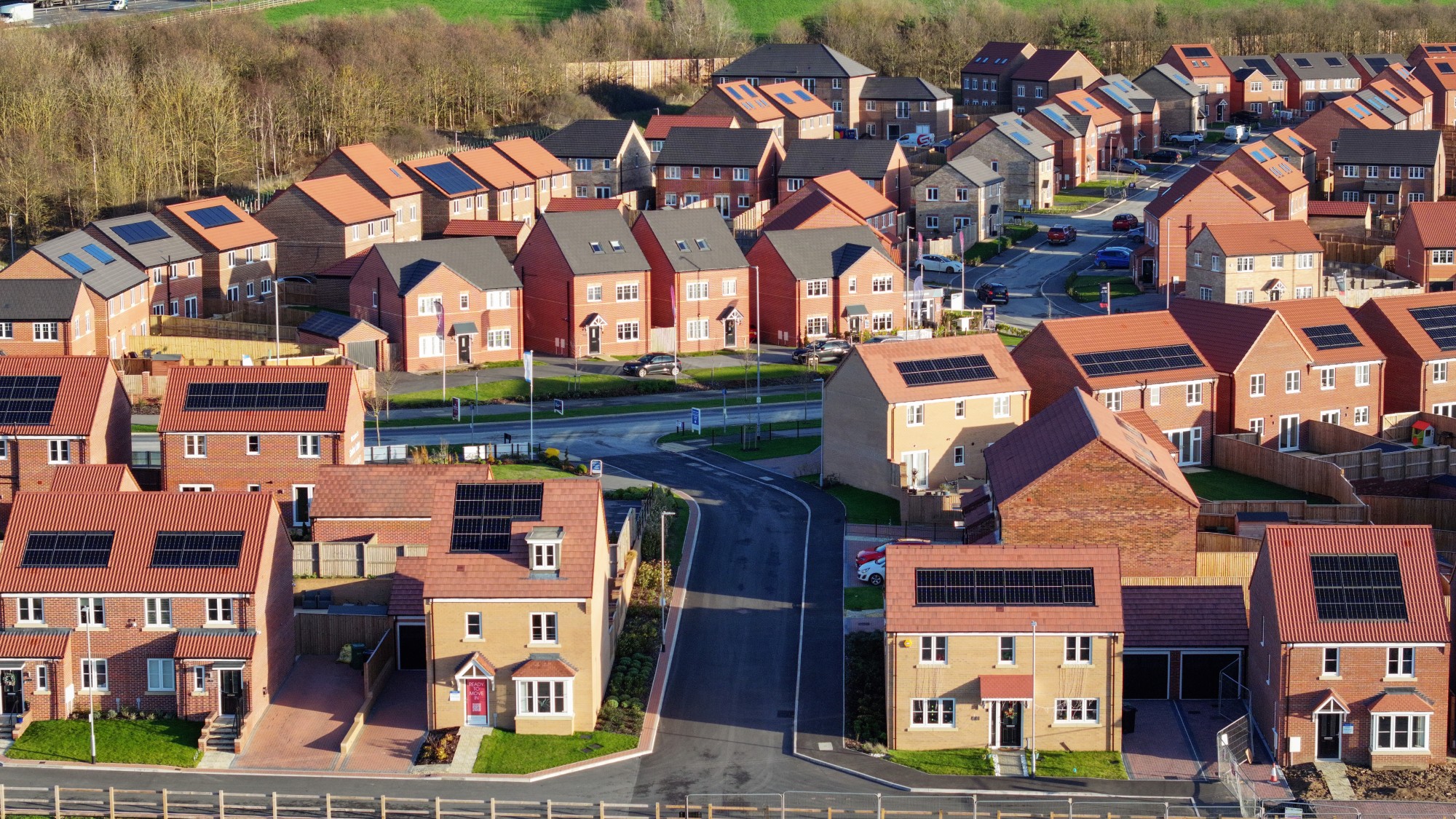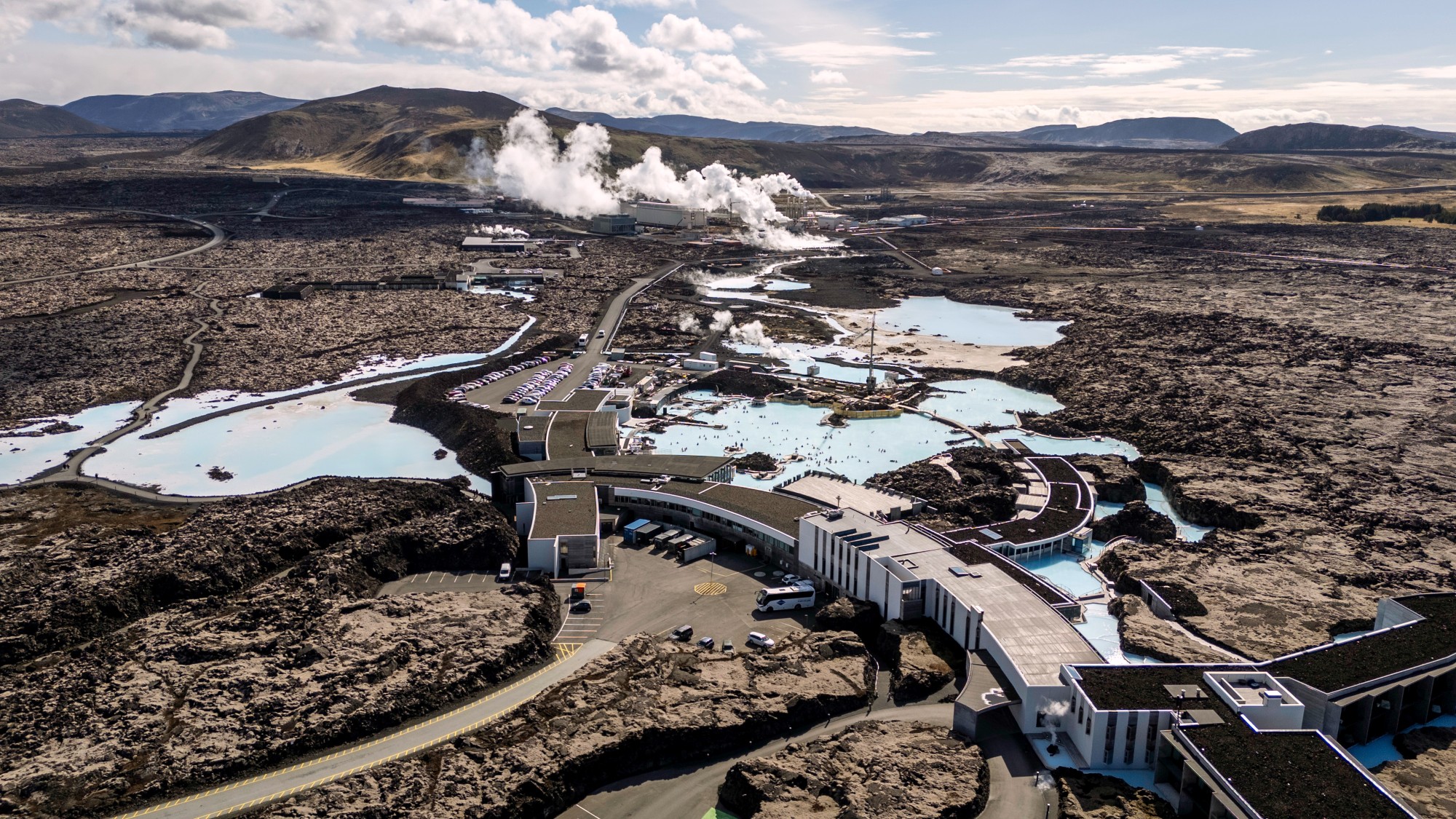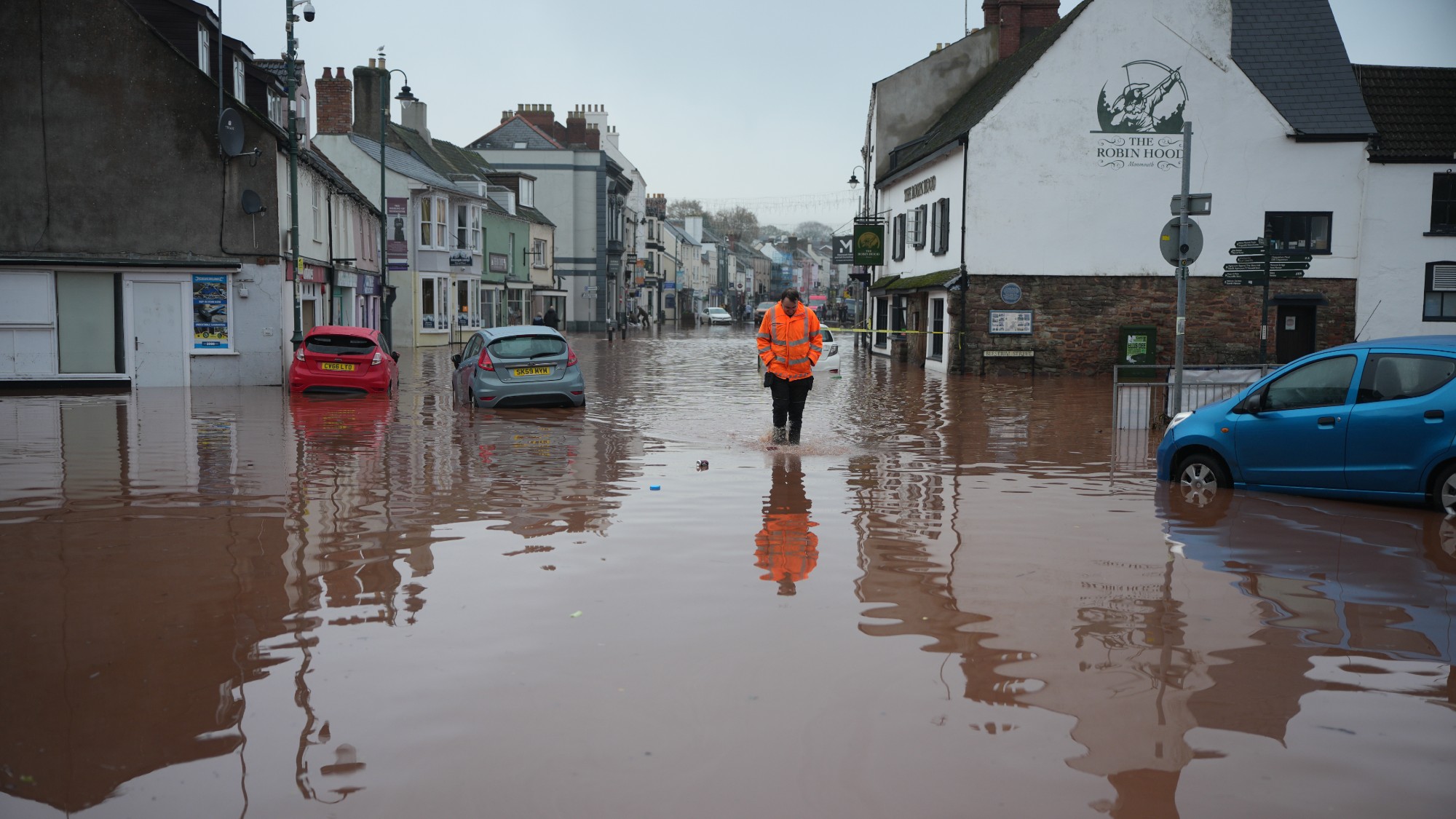Why Biden is banning Alaska Arctic oil drilling now
The Biden administration blocks drilling on pristine federal land in Arctic Alaska


A free daily email with the biggest news stories of the day – and the best features from TheWeek.com
You are now subscribed
Your newsletter sign-up was successful
The Biden administration this week said it would bar oil drilling on millions of acres on Alaska's North Slope and cancel oil leases in the Arctic National Wildlife Refuge, stepping up its effort to protect sensitive federal land.
How much land will the regulations protect?
The new regulations are intended to prohibit drilling on nearly half of the National Petroleum Reserve-Alaska, America's biggest public land holding. The conservation effort would permanently protect 10.6 million acres, and impose strict safeguards covering energy exploration on another 2.4 million acres of the reserve, according to The Washington Post. Separately, Interior Secretary Deb Haaland announced that she was canceling all seven outstanding leases for oil exploration in the Arctic National Wildlife Refuge, a pristine 1.5-million-acre coastal plain in Alaska's northeast corner.
Wasn't oil drilling banned there previously?
Drilling was banned in the refuge for six decades. The refuge — home to grizzly and polar bears, snowy owls, migratory birds, and herds of moose and caribou — is the nation's largest remaining expanse of unspoiled wilderness. But, notes The New York Times, it also "sits atop an estimated 11 billion barrels of oil and, for years, the fossil fuel industry, members of the Alaskan congressional delegation, and state leaders have lobbied for drilling." Congress voted in 2017 to order lease sales, and then-President Donald Trump signed the law to clear the way for energy exploration.
The Week
Escape your echo chamber. Get the facts behind the news, plus analysis from multiple perspectives.

Sign up for The Week's Free Newsletters
From our morning news briefing to a weekly Good News Newsletter, get the best of The Week delivered directly to your inbox.
From our morning news briefing to a weekly Good News Newsletter, get the best of The Week delivered directly to your inbox.
Why did the Biden administration wait until now to act?
Technically, it didn't. President Biden signed an executive order on his first day in office halting Arctic drilling. That summer, he also suspended the leases Trump granted. Alaska challenged that decision, but a court last month said the administration could put a hold on the leases while it reviewed the environmental impact. The Biden administration said it found "multiple legal deficiencies" in the Trump administration's assessment of the environmental impact, the Times reported. Two leaseholders had already asked for their contracts to be canceled. Haaland has now canceled the remaining ones, which were held by Alaska's development authority and covered 365,000 acres.
What was the reaction?
Republicans were livid. "This war on Alaska is devastating for not only Alaska but also the energy security of the nation," Sen. Dan Sullivan (R-Alaska) said on X, the social media platform formerly known as Twitter. Even some Alaska Democrats were mad, arguing that blocking oil and gas drilling in the refuge would deprive Indigenous communities in an area of desperately needed jobs. "I will continue to advocate for them and for Alaska's ability to explore and develop our natural resources," Rep. Mary Peltola (D-Alaska) told The Associated Press. But environmentalists had a very different reaction.
What do they think of the drilling restrictions?
Many environmentalists were thrilled. Abigail Dillen, president of Earthjustice, told Bloomberg News that canceling the Trump-era refuge leases "undoes an egregious attack on this cherished place" and "will help to vindicate the rights of Indigenous people and protect vital habitat." The Sierra Club's executive director, Ben Jealous, told Bloomberg that "drilling in the Arctic Refuge is incompatible with the long-term survival of the Arctic, the Gwich'in Nation's way of life, and life as we know it... By protecting these landscapes and canceling these leases, the White House has made it clear they will take bold action to avert climate catastrophe." But not all climate activists agree.
Why not?
Some are still simmering over Biden's decision earlier this year to approve the enormous $8 billion Willow oil drilling project in the same area. Some environmentalists said the new protections weren't enough to make up for the betrayal they felt over that "carbon bomb." Others said the new regulations were a good start toward getting back to fulfilling Biden's campaign promise of "no new drilling, period." "It is good news. It's not mission accomplished, but it preserves a path to permanent protection of the Arctic refuge," Rep. Jared Huffman (D-Calif.), who has proposed legislation to permanently ban drilling there, told The Hill. "We shouldn't be opening up public lands to any new fossil fuel development let alone a uniquely pristine place like the Arctic refuge."
A free daily email with the biggest news stories of the day – and the best features from TheWeek.com
Harold Maass is a contributing editor at The Week. He has been writing for The Week since the 2001 debut of the U.S. print edition and served as editor of TheWeek.com when it launched in 2008. Harold started his career as a newspaper reporter in South Florida and Haiti. He has previously worked for a variety of news outlets, including The Miami Herald, ABC News and Fox News, and for several years wrote a daily roundup of financial news for The Week and Yahoo Finance.
-
 Quiz of The Week: 14 – 20 February
Quiz of The Week: 14 – 20 FebruaryQuiz Have you been paying attention to The Week’s news?
-
 The Week Unwrapped: Do the Freemasons have too much sway in the police force?
The Week Unwrapped: Do the Freemasons have too much sway in the police force?Podcast Plus, what does the growing popularity of prediction markets mean for the future? And why are UK film and TV workers struggling?
-
 Properties of the week: pretty thatched cottages
Properties of the week: pretty thatched cottagesThe Week Recommends Featuring homes in West Sussex, Dorset and Suffolk
-
 Earth is rapidly approaching a ‘hothouse’ trajectory of warming
Earth is rapidly approaching a ‘hothouse’ trajectory of warmingThe explainer It may become impossible to fix
-
 The environmental cost of GLP-1s
The environmental cost of GLP-1sThe explainer Producing the drugs is a dirty process
-
 Zero-bills homes: how you could pay nothing for your energy
Zero-bills homes: how you could pay nothing for your energyThe Explainer The scheme, introduced by Octopus Energy, uses ‘bill-busting’ and ‘cutting-edge’ technology to remove energy bills altogether
-
 Why scientists want to create self-fertilizing crops
Why scientists want to create self-fertilizing cropsUnder the radar Nutrients without the negatives
-
 ‘Jumping genes’: how polar bears are rewiring their DNA to survive the warming Arctic
‘Jumping genes’: how polar bears are rewiring their DNA to survive the warming ArcticUnder the radar The species is adapting to warmer temperatures
-
 Pros and cons of geothermal energy
Pros and cons of geothermal energyPros and Cons Renewable source is environmentally friendly but it is location-specific
-
 How will climate change affect the UK?
How will climate change affect the UK?The Explainer Met Office projections show the UK getting substantially warmer and wetter – with more extreme weather events
-
 The Southern Ocean is holding in a ‘burp’
The Southern Ocean is holding in a ‘burp’Under the radar The heat from the past can affect the future
